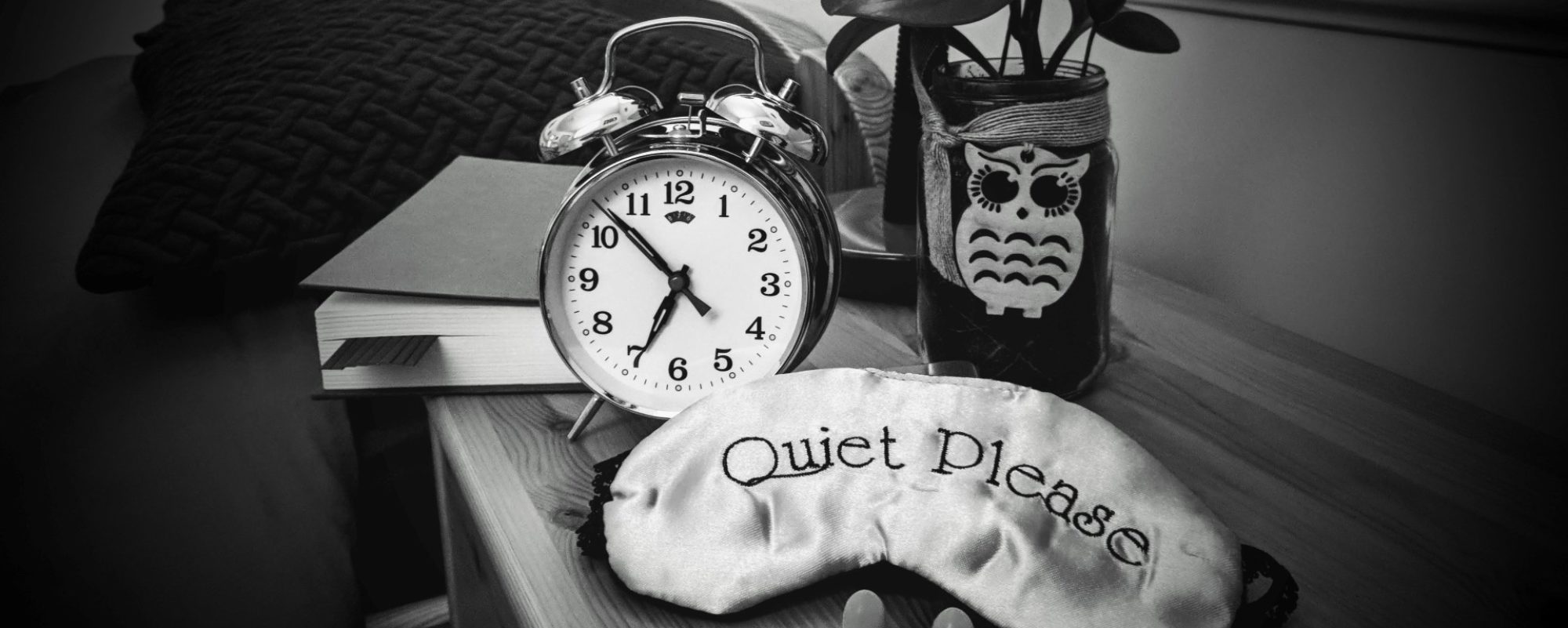Sometimes there are factors within our control which affect the quality of sleep we achieve. We’ve all been responsible for sabotaging our sleep from time to time. For example, having that extra glass of wine in the evening when company is over or having that cute puppy sleep on the bed with you (at home, our sleep disorder’s name is Mikky!). Yes, even I am guilty of such things despite being well-versed on the positive and negative effects of certain sleep habits.
Sleep hygiene is important and represents the practices and conditions that are conducive to promoting positive sleep health. The following suggestions will assist you in obtaining satisfying shut-eye.
- Lighting – A dark room is ideal. If you do not have black-out curtains, try wearing an eye mask. It is also very important to avoid artificial light in the evening, especially that arising from TV screens, computers and other devices. Our bodies possess internal mechanisms within the eyes and brain that respond to light and dark and as such, tell us when it is time to sleep and when it is time to wake. When the brain receives a signal of darkness, our bodies begin producing melatonin, a hormone that naturally promotes drowsiness. With light stimulation, our melatonin production is hindered. Fortunately, reading at bedtime via dim bedside lamp is much less disruptive due to the dimmer indirect form of lighting.
- Temperature – This should be comfortable and adjusted to each individual’s needs. Ideally, you will sleep best in a room with a temperature set around 20 degrees celsius or even slightly cooler if using warm blankets. Do not go to bed if you are chilled as this will prevent you from getting to sleep in a timely manner. Try having a warm bath before bed. This will also have secondary relaxing effects that will promote sleep onset.
- Noise – A quiet bedroom is best. If you live beside a noisy highway or next door to a barking dog, try wearing earplugs or using a fan/white noise generator that will drown out those sounds which will normally startle you awake or prevent you from getting to sleep initially. If you tend to be a person that thinks a lot at night, the white noise option could be better for you as it may suppress your thinking compared to the complete silence of ear plugs. In some cases, ear plugs can be uncomfortable when inserted deeply and occasionally this snug fit may cause you to hear your amplified heart beat which can be an annoyance.
- Substances and Diet – Avoid caffeine, nicotine and alcohol 4-8 hours before bedtime if possible and limit your intake. The effects of consumption will vary with each individual and timing should be adjusted accordingly. Ultimately, these substances are stimulants and will affect how quickly you fall asleep or for how long you stay asleep despite sometimes feeling as though they possess relaxing properties. Also avoid heavy meals or snacks in the evening as the body will have trouble getting to sleep while it struggles with digestion. Having said that, you should not go to bed on an empty stomach either, as hunger pangs can delay sleep onset. A light nibble such as cheese and crackers with a glass of warm milk is helpful.
- Exercise – Regular exercise during the day is beneficial as it reduces stress and calms nervous muscles. The benefits of weight-loss may also reduce snoring and obstructive apnea. Perform your workout at least 6 hours prior to bedtime though, since elevated metabolism can make it difficult to initiate sleep.
- Relaxation – Meditation, deep breathing and stretching at night, are effective ways of inducing calm. If you tend to be a worrier, keep a pen and notebook at the bedside. Jot down anything that is occupying your thoughts such as the list of errands you need to take care of the next day. Once your mind is clear, sleep will come more easily.
- Timing – It is important to keep a regular sleep-wake schedule so as not to upset your internal clock. If you are having troubles falling asleep or staying asleep however, do not stay awake in bed past 20 minutes. Get up and find something soothing to keep you busy until you feel drowsy and can return to bed. Stressing about not sleeping and remaining in the bedroom has detrimental effects because soon the brain begins to associate the bedroom with anxiety and frustration. That is not a pattern you want to encourage. The bedroom should be a welcome place and used only for sleep, intimacy and recovery from illness.
Remember, “A better sleep tonight means a better tomorrow!”
Courtesy of: COMMUNITY SLEEP COACH INC.
Author: Alena Krizek, RPSGT, REEGT, Certified Clinical Sleep Educator

